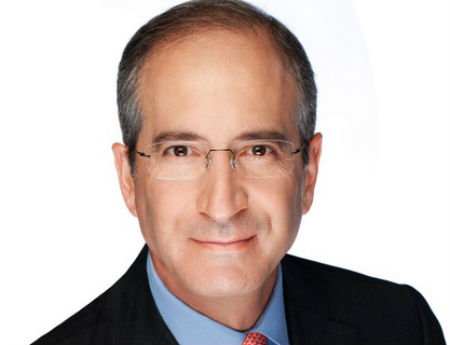INTX 2016: Comcast'sRoberts: No Plans to Take Pay TV Over-The-Top
The smarter way to stay on top of the multichannel video marketplace. Sign up below.
You are now subscribed
Your newsletter sign-up was successful

Boston -- Even as AT&T, Dish Network and a new wave of virtual pay TV providers, including Hulu, develop and deploy competitive multichannel services, Comcast expects to resist the temptation to offer its own services beyond its traditional footprint.
“We don’t have any plans to do that,” Brian Roberts, Comcast’s chairman and CEO, said when asked about the company’s OTT plans as programming rights continue to evolve during a media scrum here Monday at the Comcast booth following the morning’s opening session.
“The world always changes, so these answers are good for this moment,” Roberts allowed. “We have a clear value-add in-market,” he added referring to the operator’s fleet of 3,500 trucks and array of call centers. “We have a physical connection with [the customer].”
Roberts also pointed to Comcast’s improving video results. It added 53,000 video subscribers in the first quarter of 2016, its best Q1 video growth in nine years.
“If something is working, I’m not sure you need to change it.”
Last month, Comcast Cable president and CEO Neil Smit said there’s nothing stopping Comcast from going OTT from a tech and rights perspective, but added that Comcast has yet to see an OTT business model “that really hunts."
The smarter way to stay on top of the multichannel video marketplace. Sign up below.
Though Comcast has no current plans to take its TV service over-the-top, it is looking to expand its own X1 platform through a licensing strategy that, so far, has scored agreements with Cox Communications and Shaw Communications.
“We want to make this platform available around the world,” Roberts said. “We have a whole group that is doing nothing but that.”
Roberts also said it’s difficult to predict the competitive effect of virtual MVPDs, which will include Comcast corporate cousin Hulu, which is partly owned by NBCUniversal.
“One of the things we’re assuming is we’ve got to have the best product and we’ve got to have the best service,” he said. “We’re assuming that the world is going to get more competitive. We didn't buy NBCUniversal to change that trajectory but rather to participate in the changing ecosystem."
Roberts was also asked about the Federal Communications Commission’s pursuit of new set-top box rules, and reiterated the MSO’s belief that the market for retail video devices that can support pay TV services is evolving without more government intervention.
“Do we need more regulation in this competitive, super-technologically changing world that we're living in? Probably we disagree on that,” he said. “We feel competitive pressure every minute."
Roberts also disagreed with any suggestion that the FCC’s network neutrality rules aren’t impacting Comcast’s investments in network infrastructure.
“It’s not no big deal,” he said of the current rules, which classify broadband as a Title II service (the NCTA is suing the FCC over it). “Regulations affect your ability to invest…Uncertainty doesn’t equal investment.”
